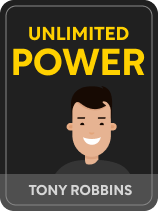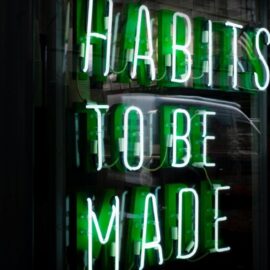

This article is an excerpt from the Shortform book guide to "Unlimited Power" by Tony Robbins. Shortform has the world's best summaries and analyses of books you should be reading.
Like this article? Sign up for a free trial here.
How do your beliefs influence your life? How can you change your innermost beliefs to support—rather than hinder—your success and well-being?
According to Tony Robbins, beliefs are the bedrock on which you build your life. The more strongly you hold a belief, the more important it is for that belief to be powerful rather than disempowering.
Here’s how your beliefs shape your life outcomes.
Tony Robbins: Control Your Beliefs
Tony Robbins says that everyone has a belief system that they’ve built—largely without realizing it—based on their upbringing, personal experiences, and knowledge. Those beliefs create the boundaries, or the lack of them, that person operates within.
In other words, you can do whatever you believe you can; conversely, you can’t do what you believe you can’t.
For example, suppose two scientists each get the chance to present their work at a large and prestigious conference. One believes that he doesn’t deserve the chance—that his work isn’t important enough, and that he’s not experienced or knowledgeable enough to stand in front of a room full of famous scientists and teach them something new. He believes that he can’t do it, so he declines the invitation and remains in obscurity. This scientist’s beliefs got in the way of him achieving his goals.
The other scientist believes that she’s as good a scientist as anyone else at that conference, that her work is as important and as well-done as anything the other attendees produced, and that all she needs is the chance to prove herself. Therefore, where the other scientist saw a frightening and overwhelming event that he wasn’t prepared for, she sees an opportunity. She presents her work, her name spreads through the scientific community, and she gets a large influx of funding to continue her research. This scientist’s beliefs drove her to achieve her goals.
The 3 Levels of Belief
According to Tony Robbins, beliefs can be classified into three categories:
Opinions are the weakest type of belief. You form opinions based on limited, temporary experiences, and you don’t generally attach strong emotions to them. Opinions are the least motivating type of belief, and they’re also the easiest type of belief to change. For example, you might personally prefer coffee to tea, but you’re not likely to put any great effort into convincing others that coffee is the better beverage. Furthermore, you might change your opinion if you happen to find a type of tea you particularly like.
Beliefs are stronger than opinions, and they’re usually anchored by emotions as well as by experiences. As a result, beliefs are more motivating (and more difficult to change) than mere opinions; you’re more likely to try to convince others that your beliefs are correct, and you’re less likely to accept evidence that your beliefs are wrong. In fact, your beliefs are a key part of how you see yourself, so changing a belief feels like changing your identity.
Convictions are the strongest category of belief. Your convictions are key parts of how you understand the world, and they have intense feelings connected to them. Convictions are so central to your sense of self that you might become angry if anyone questions them. For example, a devout Christian holds the conviction that people can only reach Heaven by believing in Jesus—that person is likely to try very hard to save others by converting them to Christianity, and they would probably become upset if someone questioned or mocked that religion. An empowering conviction is the most beneficial type of belief you can have.

———End of Preview———
Like what you just read? Read the rest of the world's best book summary and analysis of Tony Robbins's "Unlimited Power" at Shortform.
Here's what you'll find in our full Unlimited Power summary:
- How to harness your thoughts and beliefs and turn them into purposeful action
- How to find even greater success through cooperation and leadership
- How you can use your successes to help others and improve the world






